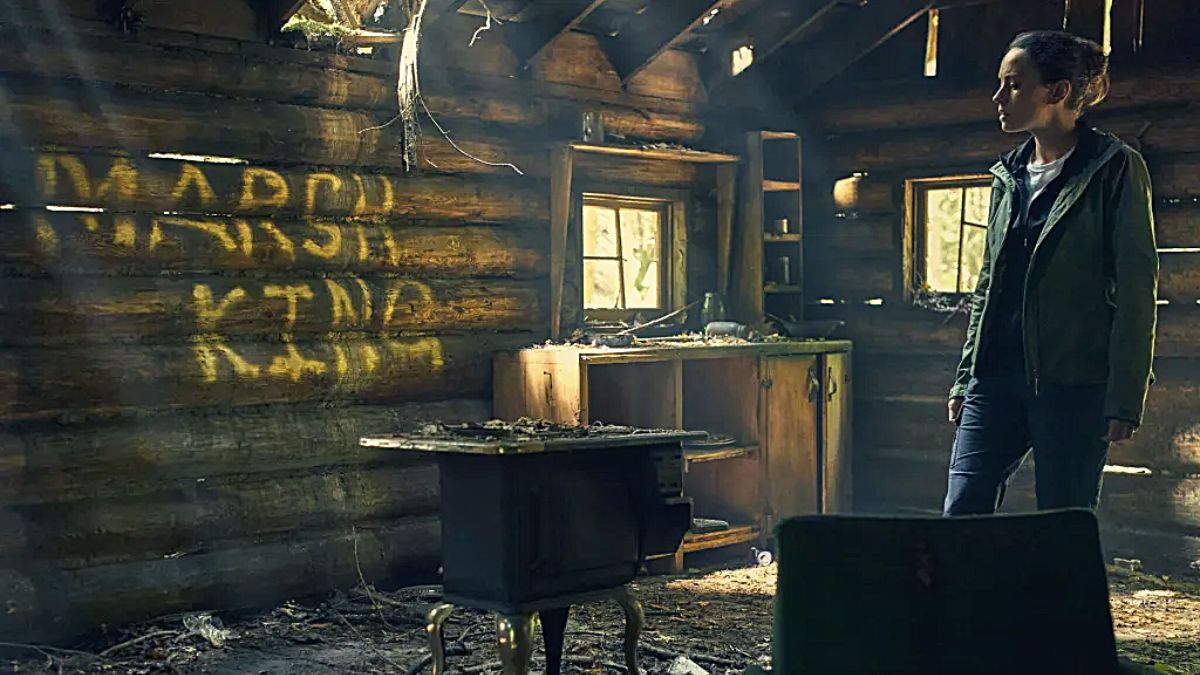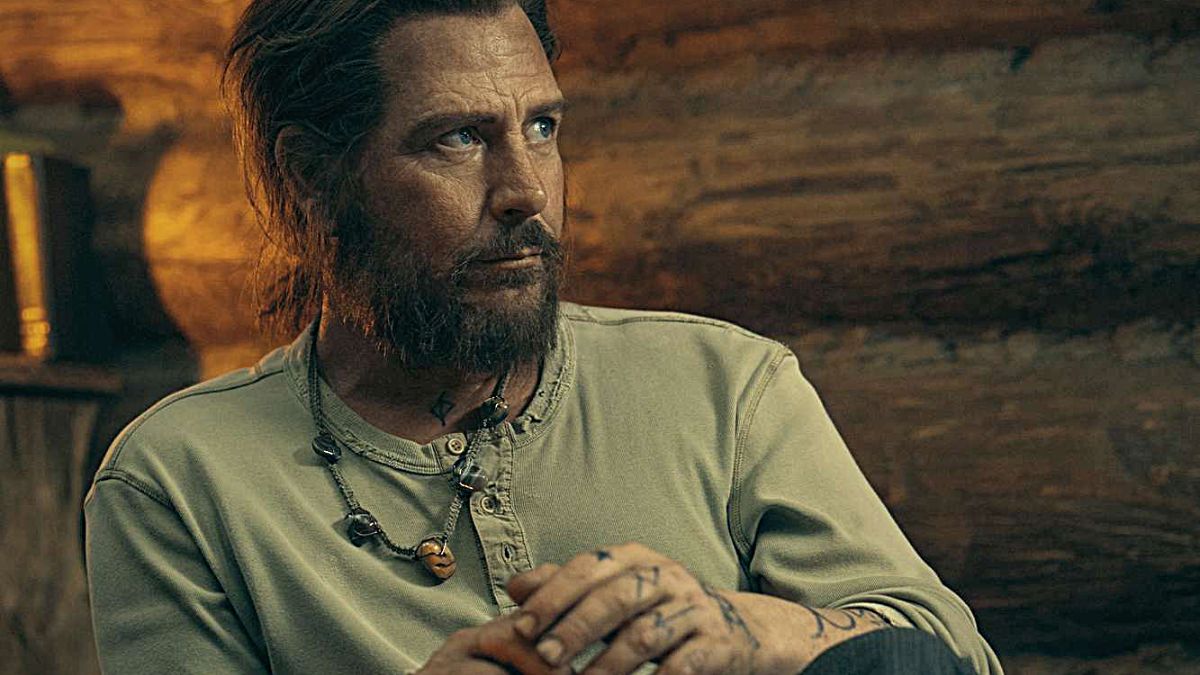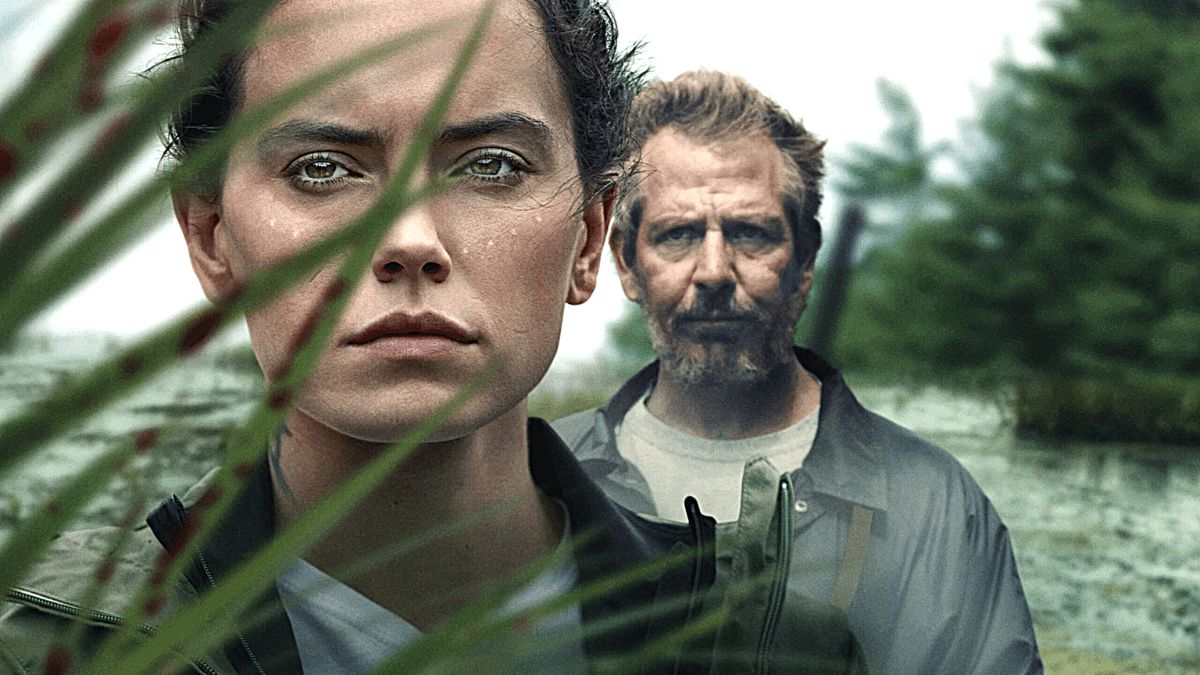Neil Burger’s thriller The Marsh King’s Daughter is an adaptation of a book by Karen Dionne, which in turn adapts a popular children’s short story by Hans Christian Andersen.
Much like Andersen’s 1858 tale, in Dionne and Burger’s story the protagonist is the daughter of a monstrous figure known as the Marsh King and the woman he abducts. This modern version, however, ditches any kind of fantasy element for a crime mystery reminiscent of the real-life horror stories of kidnapped women and children born in captivity. It’s Room meets Where The Crawdads Sing, then, with a pinch of Tomb Raider.
Daisy Ridley and Brooklynn Prince play Helena, the titular Marsh King’s daughter, who is born and raised by her recluse father (Ben Mendelsohn) in the wilderness of the Upper Peninsula of Michigan (albeit filmed in Ontario, Canada). Completely unaware her mother had been abducted and held against her will for years, Helena develops a close relationship with and deep admiration for her father and his off-the-grid ways. The two are eventually separated and Helena, reintegrated into society, forms her own family, all while concealing the grim secret of her childhood. When her dad returns to her life, Helena must finally come to terms with her two disparate lives and the conflicting feelings she holds for the man who raised her.

Burger’s film, which was adapted for the screen by The Revenant‘s Mark L. Smith and Elle Smith, never really finds its tone, shifting between family drama, horror suspense, and action in a disheveled, uneven way that fails the potential of its core conflict.
Helena’s complicated bond with her father and her childhood is repeatedly mentioned – as an adult, she misses the connection to nature and claims to feel incomplete wherever she goes – but the movie fails to go beyond the expected and superficial. Either due to the writing or Ridley’s rather stiff performance, the approach to Helena’s traumatizing experiences and divergent lifestyles is about as deep as the waters of the marsh she was raised in, excessively leaning on clichéd dialogue and melodrama. One particular speck of brilliance is the actress’s subtle shift between elation and dread when she finally sees her dad again, which delivers more nuance in a split second than the rest of the running time put together.
Despite all this, however, there is a clear and pertinent attempt to move away from the focus on the father-daughter relationship that undeniably defines it – were it not literally called The Marsh King’s Daughter – and give Helena’s mother, as well as the protagonist’s relationship with her own baby daughter, a not entirely evident but very much present weight. Their relationship after escaping the father’s remote cabin in the woods is strained, as the young girl resents her mother for splitting them up. Growing up and becoming a mother herself, Helena reevaluates everything she thought about her mom and deconstructs the twisted ideas of strength vs. weakness that her dad’s upbringing had instilled in her.
So much of her father’s survival-of-the-fittest and trust-no-one-but-yourself speech had managed to worm its way into Helena’s personality as an adult woman, while the real strength lay in her mother’s unrelenting gentleness and vulnerability in the face of violence. The ambiguous ending brings this emotional and psychological tug-of-war to a surprisingly reflective conclusion that almost makes up for the film’s easy cop-outs elsewhere.

When it comes to the whole thriller aspect, The Marsh King’s Daughter delivers a solid amount of tension throughout its second act, as Helena becomes almost haunted by the possibility of her father re-entering the carefully protected life she had built in spite of it all. The unease and uncertainty that both the protagonist and the audience feel for a while is one of the most successful elements of the movie, but is unfortunately cut short by a final stretch of awkward gun fights and unrealistic stunts that not only ruin the mood, but simplify and flatten the emotional journey of its leading lady.
Had it chosen to focus and perfect any of its main three facets – drama, suspense, or action – instead of bundling all three without any proper meat, The Marsh King’s Daughter would have possibly been a thrilling, emotional, and uncomfortable ride detailing a young woman’s fight against a fate she did not choose. Instead, the result is a shallow attempt at suspense with nothing of importance to say, except for when Helena’s stepdad tells her her deranged survivalist father is misappropriating indigenous culture that he doesn’t actually understand. Then again, that’s just five seconds of an almost two-hour movie).
Middling
'The Marsh King's Daughter' is yet another addition to the forgotten library of inconsequential and underdeveloped action thrillers.

